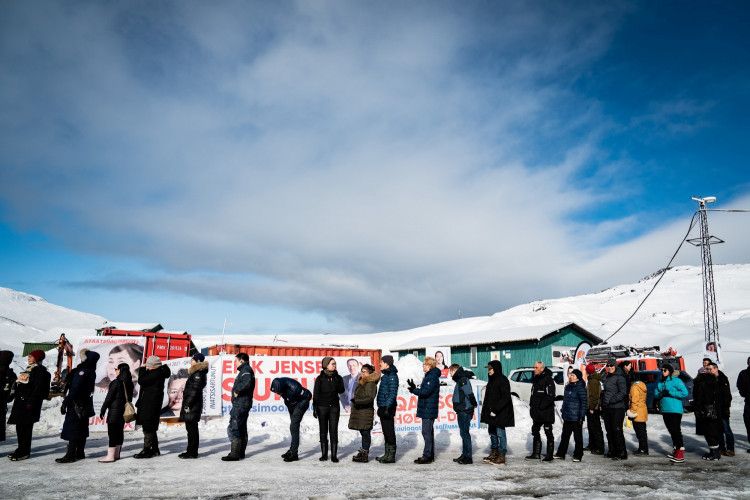Greenland held legislative elections Tuesday, following a campaign focusing on a controversial mining project in the autonomous Danish territory, as the Arctic island grapples with the effects of global warming firsthand.
The ruling social-democratic Siumut and main opposition Inuit Ataqatigiit (IA) parties are divided on the subject, with Siumut supporting it and IA opposing it.
According to supporters, the mine will be a boost to the economy. Opponents claim that it would damage the vast island's pristine ecosystem.
The outcome will determine whether the Kvanefjeld mine project gets the go-ahead in the semiautonomous Danish territory. The project will see the development of a large mining complex at Kvanefjeld in the island's south to mine for rare-earth metals such as uranium and neodymium.
These are used in a wide range of industries and products, including smartphones, wind turbines, microchips, electric car batteries, and weapons systems. According to estimates, the Kvanefjeld mine could hold the world's largest deposit of rare-earth metals outside of China.
The election campaign for Greenland's 31 parliament seats has also focused on fishing, the country's main economic driver.
Social issues and cultural identity have been raised as young Greenlanders reconnect with their Inuit roots and question their Danish colonial heritage.
In the most recent polls, IA is leading with around 36% of the vote, while Siumut, which has been in place almost continuously since Greenland gained independence in 1979, is trailing with 23%.
Erik Jensen, the leader of the Siumut party, has stated that the mine will be "hugely important for Greenland's economy," helping to diversify revenues. This is critical if the island is to achieve complete freedom from Copenhagen someday.
Denmark, which is not opposed to Greenland's independence, provides the island with annual subsidies totaling approximately €526 million ($625 million), accounting for about one-third of its budget.
With only about 40,000 registered voters, political polls in Greenland proved to be unpredictable and prone to rapid swings, observers said.
The polls will close at 8 p.m. local time (2200 GMT), with the final results expected early Wednesday.






